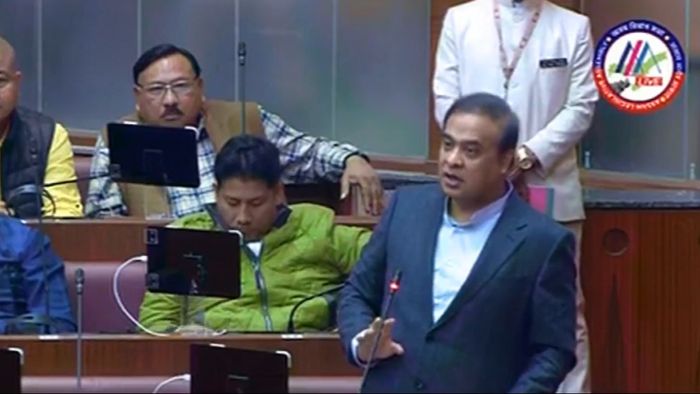Assam: Himanta Biswa Sarma talks about cow sacrifice not being mandatory practice in Islam
Assam Chief Minister Himanata Biswa Sarma on February 8 asserted that it is not obligatory to sacrifice a cow for Eid Al Adha.

- Feb 08, 2024,
- Updated Feb 08, 2024, 8:31 PM IST
Assam Chief Minister Himanta Biswa Sarma expressed his views on cow sacrifice in Islam, stating it's not a mandatory practice for Eid Al Adha.
This assertion aligns with the sentiments expressed by other Islamic scholars and leaders who have pointed out that the act of Qurbani (sacrifice) can be performed with various livestock animals, not exclusively cows.
Speaking at the Motion of Thanks to the Governor’s address, Assam Chief Minister Himanta Biswa Sarma said, "Keep Hari Mandir as Hari Mandir...If I don't like someone eating beef next to my home then no one will die out of starvation the following night...people can stay eating chicken meat...If I say I feel hurt when cows are been slaughtered on the day of Eid....where in the religion it is written that cows need to be sacrificed on Eid...There are social norms...some people surrender only because of votes, however, without surrendering if people could have explained to the guests in Assam, that this state belongs to Bir Lachit Barphukan and them to follow certain rules then no one would have tried to be part of Al-Qaeda...Assam police would not have to find Al-Qaeda cell in Madrassas."
Also Read: Assam police seizes 37.3 grams of suspected heroin in Guwahati, two arrested
Eid al-Adha, also known as the Festival of Sacrifice, is a pivotal event in the Muslim calendar, commemorating the willingness of Prophet Ibrahim (Abraham) to sacrifice his son Ismail as an act of obedience to God's command.
The practice of Qurbani is carried out from the Day of Eid al-Adha until the end of the Days of Tashreeq, and it is considered a sunnah mu'akkadah—an emphatically recommended action following the Prophet's way. While it is not an obligation, it is a highly valued act of giving and sharing with family, friends, and those in need.
In light of this, CM Sarma appealed to the followers of Islam in Assam not to sacrifice any animal that might hurt the sentiments of their neighbours of other faiths, in accordance with the state's cattle preservation law.
This guidance from CM Sarma reflects a broader understanding of Islamic teachings, which prioritize compassion and respect for the beliefs of others.
It underscores the flexibility within Islamic practices for Qurbani and the importance of maintaining harmony within diverse communities.